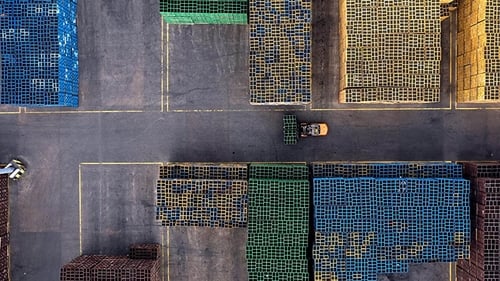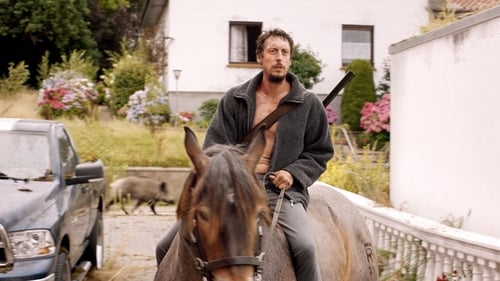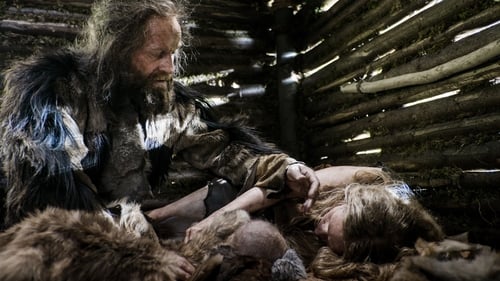Andreas Pichler
Nascimento : 1967-08-10, Bozen, Italy

Writer
Alcohol: No substance in the world seems so familiar to us and is so incredibly diverse in its effect. Alcohol is available everywhere and this particular molecule has the power to affect all 200 billion neurons of our human brain in completely different ways. But hardly anyone calls alcohol a drug despite its psychoactive and cell-destroying effect. Why do we tolerate the death of three million people every year? Have we turned a blind eye to the dangers and risks for thousands of years? What role does the powerful alcohol industry play with an annual turnover of 1.2 trillion euros in this on-going concealment? The author, who himself enjoys having a drink, looks into the question why we drink at all, what alcohol does to us and to what extent the alcohol industry influences society and politics.

Director
Alcohol: No substance in the world seems so familiar to us and is so incredibly diverse in its effect. Alcohol is available everywhere and this particular molecule has the power to affect all 200 billion neurons of our human brain in completely different ways. But hardly anyone calls alcohol a drug despite its psychoactive and cell-destroying effect. Why do we tolerate the death of three million people every year? Have we turned a blind eye to the dangers and risks for thousands of years? What role does the powerful alcohol industry play with an annual turnover of 1.2 trillion euros in this on-going concealment? The author, who himself enjoys having a drink, looks into the question why we drink at all, what alcohol does to us and to what extent the alcohol industry influences society and politics.

Producer
As thousands of migrants attempt to cross the French-Italian border on foot through treacherous mountain routes, the state cracks down on the local communities that come to their aid in this revealing look at an unfolding human rights crisis.

Writer
Milk is Big Business. Behind the innocent appearances of the white stuff lies a multi-billion euro industry, which perhaps isn't so innocent…

Director
Milk is Big Business. Behind the innocent appearances of the white stuff lies a multi-billion euro industry, which perhaps isn't so innocent…

Co-Producer
Aos quarenta anos de idade, Armin (Hans Löw) está entediado, ele trabalha como freelancer e ganha pouco dinheiro. Durante a noite, ele frequenta festas noturnas e se relaciona com mulheres muito mais jovens. Ele sabe que as coisas não vão bem, mas não acredita que possa ser capaz de mudar sua vida.

Writer

Director

Producer
Os Alpes Ötztal, há mais de 5 300 anos. Um clã neolítico se instalou perto de um riacho onde seu líder, Kelab, é o guardião do santuário sagrado, Tineka. Um dia, enquanto Kelab foi caçar, o assentamento é atacado e os membros da tribo assassinados brutalmente, incluindo a esposa e o filho de Kelab. O santuário sagrado é roubado e o único sobrevivente é um bebê recém nascido. Cegado pela dor, Kelab começa uma jornada para se vingar e não tem outra escolha além de levar a criança com ele.

Producer's Assistant
Aaron convida sua namorada, Lea, e seu filho de oito anos, Tristan, a passarem as férias nas montanhas. Mas o que poderia ter sido um novo começo em sua vida juntos lentamente se transforma em uma luta constante. No alto da região dos Três Picos dos Dolomitas italianos, Aaron e Tristan enfrentam seu amor ambivalente um pelo outro e com seus medos um do outro, enquanto Lea está tentando encontrar seu lugar nesse triângulo. Na tentativa de ganhar o respeito do menino, Aaron o leva até a montanha onde o confronta com sua contínua animosidade. Em algum momento, a névoa se instala e Aaron perde o caminho de Tristan.

Director

Director
How would you feel if the state sold the mountain above your village to a big multinational, your country's beautiful islands, its beaches or your great monuments? Strangled by debt, governments and public administrations all over Europe act like any indebted family: they try not only to reduce costs, but attempt to replenish their coffers by putting their most valued family possessions on the market. More often than not, this includes part of the countries' historical and natural heritage: castles, islands, mountains, beaches, palaces, ancient arenas and archaeological sites.
But who really owns these properties? Aren't they our common heritage, our history that will end up in private or corporate hands and will no longer be accessible to all?
Or is the private sector more efficient in managing these properties? And if so, who decides on the best deal? Are there democratic proceedings for the sale of our common good? The people of Europe want accountability.

Line Producer
Valentin is pretty p* off. After being confined to a wheelchair because of a snowboard accident, his mother forces him to participate in a theater project for people with disabilities - the diapers in his room and the initially arrogant roommate add insult to injury. The one and only redeeming feature of life at the facility for the handicapped is the lovely caretaker, Mira. Unfortunately Mira is going steady with a local slime-ball, Marc. Valentin decides to enter the fray against his sturdy and prosperous rival, and even carries it a step further: he decides to rob the gas station at which Marc works. With fervent enthusiasm, his house mates Lukas and Titus offer themselves as accomplices. With this the freshly hatched trio, heads off to procure a gun. Valentin discovers that although handicapped, his mates are hardly inept; they not only manage to pull off their heist, they become friends in the process. As we come to a showdown between the gas...

Writer
A documentary about the murder of Pier Paolo Pasolini.

Director
A documentary about the murder of Pier Paolo Pasolini.

Writer
Tourism takes its toll on the inhabitability of Venice.

Director
Tourism takes its toll on the inhabitability of Venice.

Director
Silvio, One of us, shows the current political mood in Italy and through some portraits investigates the phenomenon of how far Berlusconi and his politics mirror Italy.

Director

Writer
The story of Europe’s stay-behind network with names like GLADIO in Italy or SDRA8 in Belgium is one of the most powerfully hidden secrets of recent American and European history. NATO’S SECRET ARMIES examines three major terror attacks: The Brabant massacres in Belgium, The Oktoberfest bombing in Germany and the Piazza Fontana killings in Italy. Through the testimony of former terrorists, Gladio, ex-CIA agents, diplomats, prosecutors and police investigators the film pieces together the disturbing trail of influence behind each of the attacks and considers whether hundreds may have died at the hands of state sponsored terrorism. More chillingly, it asks whether the strategy of tension might still be in use today.

Director
The story of Europe’s stay-behind network with names like GLADIO in Italy or SDRA8 in Belgium is one of the most powerfully hidden secrets of recent American and European history. NATO’S SECRET ARMIES examines three major terror attacks: The Brabant massacres in Belgium, The Oktoberfest bombing in Germany and the Piazza Fontana killings in Italy. Through the testimony of former terrorists, Gladio, ex-CIA agents, diplomats, prosecutors and police investigators the film pieces together the disturbing trail of influence behind each of the attacks and considers whether hundreds may have died at the hands of state sponsored terrorism. More chillingly, it asks whether the strategy of tension might still be in use today.

Director
Few intellectuals have experienced as much admiration and hatred as Antonio Negri. His international best-selling book, Empire, a critical analysis of the new global economy coauthored with Michael Hardt, was hailed as a new manifesto for the 21st century, and turned Negri into a leading spokesperson for the international anti-globalization movement. Antonio Negri: A Revolt that Never Ends profiles the controversial life and times of this important moral and political philosopher, militant, prisoner, refugee, and so-called "enemy of the state." It traces his roots in the radical left-wing movements in Italy during the 60s and 70s, illustrated through incredible archival footage of strikes, factory occupations, terrorist actions, violent street confrontations, and government trials of dissidents. During these tumultuous decades Negri spent ten years in prison and fourteen years in Parisian exile, where he contributed to philosophical debates with authors such as Gilles Deleuze.













